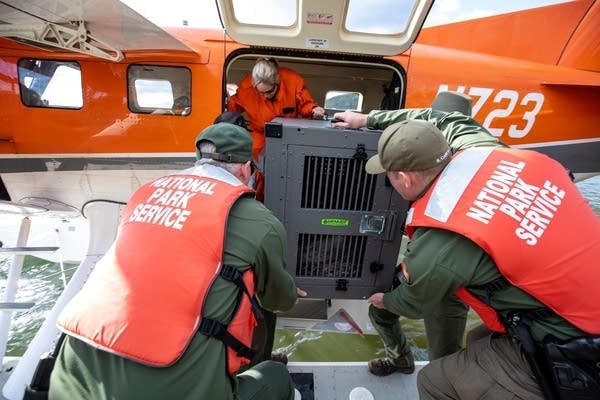Death of wolf moving to Isle Royale starts sedation review by NPS

National Park Service staff and veterinarian Samantha Gibbs (top left) unload a wolf off of the seaplane used to transport the wolves from Grand Portage, Minn., to Isle Royale National Park in Michigan.
Courtesy of Jacob W. Frank, National Park Service
Go Deeper.
Create an account or log in to save stories.
Like this?
Thanks for liking this story! We have added it to a list of your favorite stories.


